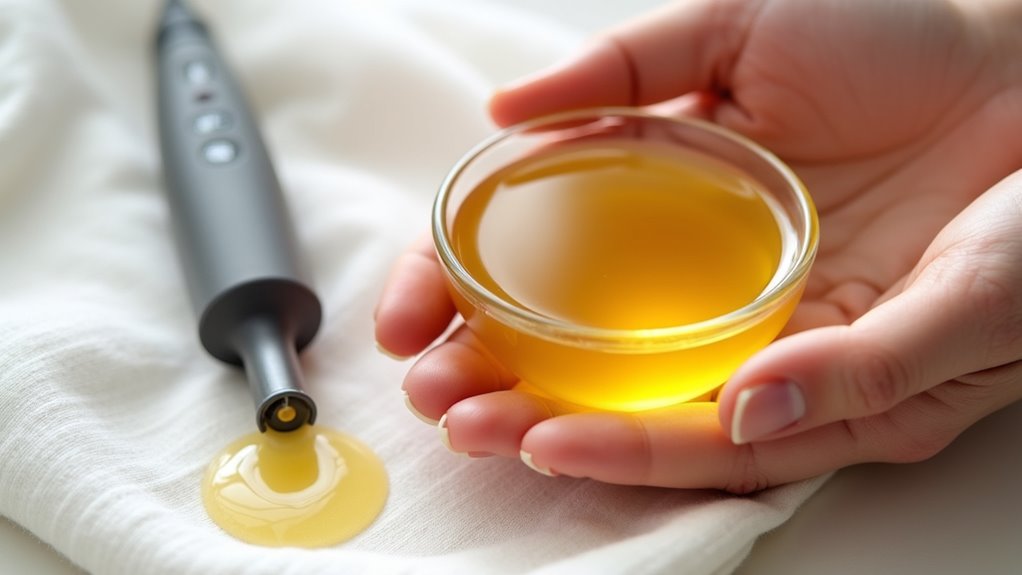Using coconut oil instead of conductive gel isn’t recommended, as it doesn’t have the necessary electrical conductivity for medical or cosmetic procedures. Coconut oil acts more like a lubricant and can weaken the connection between devices and your skin, potentially affecting safety and accuracy. Experts advise sticking to products designed specifically for conduction. If you want to learn more about safe alternatives and potential risks, keep exploring.
Key Takeaways
- Coconut oil has lower electrical conductivity than standard conductive gels, making it unsuitable for accurate medical readings.
- Its viscosity and staining properties can interfere with device contact and hygiene during procedures.
- Experts warn that using coconut oil may compromise safety, reliability, and device performance in medical and cosmetic applications.
- Natural alternatives like coconut oil are not tested or approved for medical use, posing potential risks and inaccuracies.
- Always consult healthcare professionals before substituting traditional conductive gels with natural options like coconut oil.
Understanding the Role of Conductive Gel in Medical Procedures
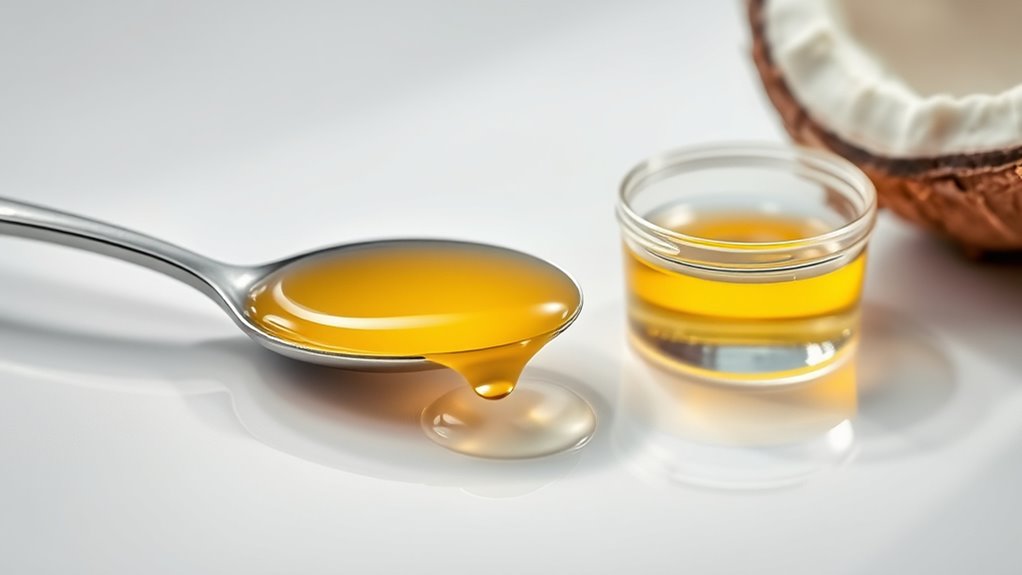
Conductive gel plays a crucial role in medical procedures by ensuring proper transmission of electrical signals between devices and the patient’s skin. Its primary function is to reduce skin resistance, allowing accurate readings from devices like ECGs or facilitating effective electrical stimulation. Besides medical use, conductive gels have alternative uses in various fields, including cosmetic applications where they improve contact during skincare treatments or facial electrical therapies. These gels help conduct currents smoothly, enhancing treatment effectiveness. While coconut oil is popular for skin care, it lacks the conductive properties necessary for medical or cosmetic electrical procedures. Understanding these roles highlights why proper conductive mediums are essential for safety and efficiency, whether in healthcare or beauty routines.
The Composition and Properties of Coconut Oil
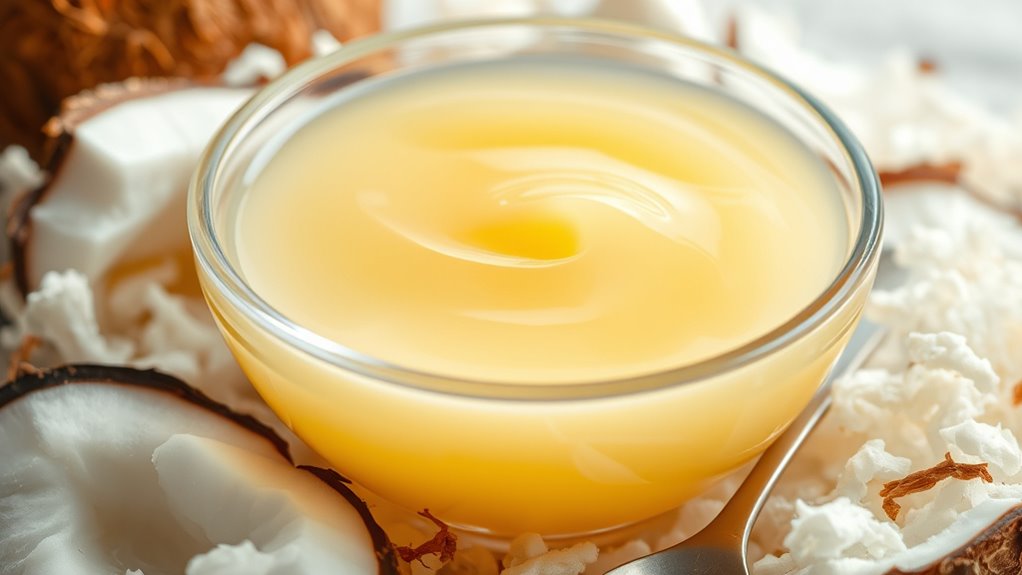
Coconut oil is a natural fat derived from the meat of mature coconuts, and its composition is primarily made up of saturated fats. These fats give coconut oil its solid state at room temperature and contribute to its stable, long shelf life. Its unique composition includes medium-chain triglycerides (MCTs), which are easily absorbed and provide quick energy. Because of its natural properties, coconut oil has a variety of alternative uses beyond cooking, such as skincare and hair care. It’s also popular in natural remedies for soothing skin and reducing inflammation. Its versatility makes it a common choice for those seeking a natural, multipurpose product. However, understanding its composition helps clarify why it behaves differently from traditional conductive gels in medical or other sensitive applications.
Comparing Coconut Oil and Traditional Conductive Gels
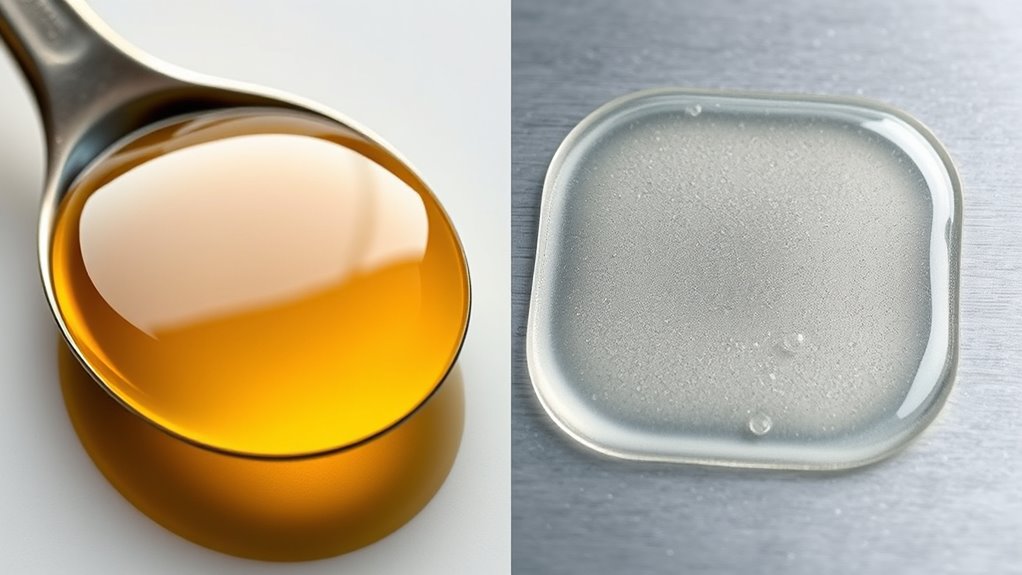
While coconut oil’s natural composition makes it suitable for skincare and other uses, it behaves quite differently from traditional conductive gels. As an alternative lubricant, it offers benefits but also limitations. First, coconut oil has a lower electrical conductivity, making it less effective for activities requiring precise transmission. Second, it’s a natural remedy with antimicrobial properties, but it can weaken the connection quality compared to synthetic gels. Third, coconut oil’s viscosity and tendency to stain skin or fabrics can hinder its practicality. Additionally, projector technology relies on consistent and reliable conductivity for optimal performance, which coconut oil cannot provide. While some seek natural remedies for lubrication, coconut oil’s properties make it unsuitable for all applications. For tasks needing reliable conductivity, traditional gels remain the preferred choice, as they’re specifically designed for such purposes.
Medical Experts’ Perspectives on Using Coconut Oil as a Substitute
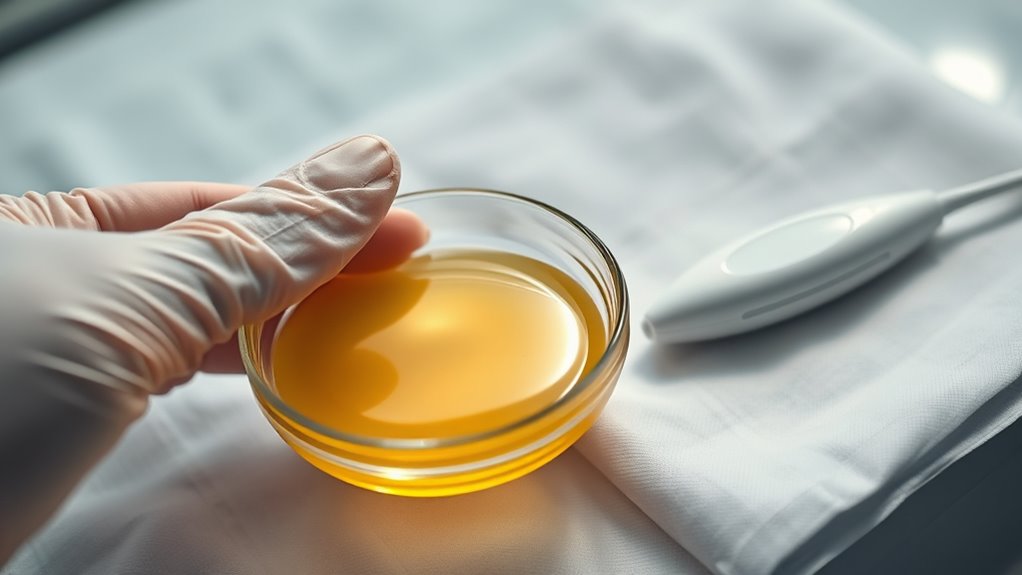
Medical experts generally advise caution when considering coconut oil as a substitute for traditional conductive gels. While some may explore alternative uses, including natural options, they emphasize understanding potential risks. Coconut oil’s cultural significance in many communities highlights its traditional applications, but this doesn’t mean it’s suitable for medical procedures. Experts point out that using coconut oil could interfere with imaging or cause skin reactions, making it unreliable for medical use. They stress that safety and effectiveness should come first, and natural alternatives like coconut oil haven’t been thoroughly tested for this purpose. Additionally, vetting products and formulations specifically designed for medical procedures are essential to ensure safety and effectiveness. If you’re contemplating using coconut oil, consult a healthcare professional to understand the limitations and prevent unintended complications. Your health and safety should always be the top priority.
Risks and Recommendations for Patients Considering Natural Alternatives
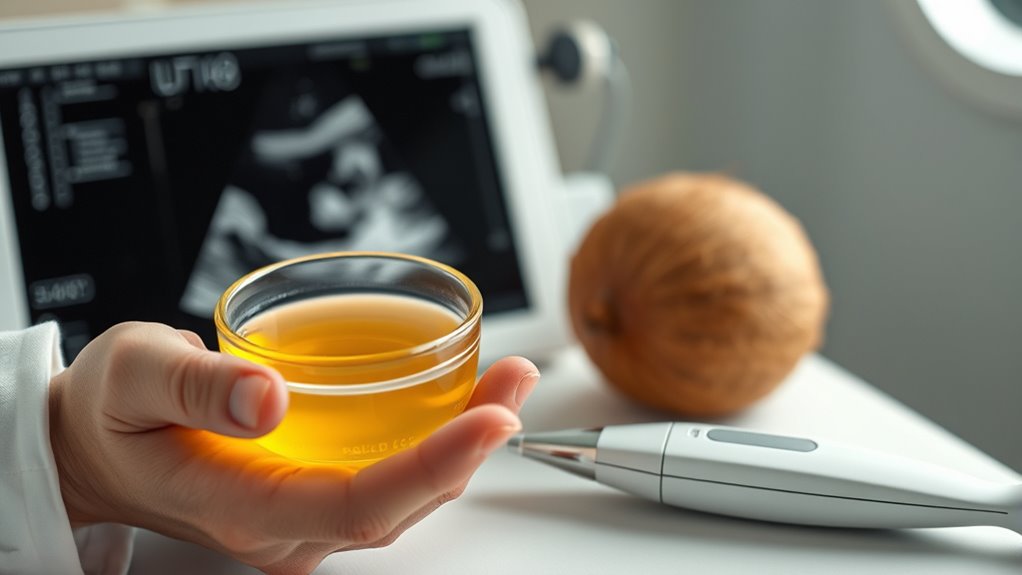
Considering natural alternatives like coconut oil for medical procedures can pose significant risks if not properly evaluated. While natural remedies are popular in alternative health, they may not meet safety standards required for clinical use. Before choosing coconut oil as a substitute, you should be aware of potential issues:
- Reduced conductivity, which can affect the accuracy of procedures like ultrasounds or electrotherapy.
- Risk of allergic reactions or skin irritation, especially if you have sensitivities to natural oils.
- Lack of sterilization, increasing the chance of infection or contamination.
Always consult healthcare professionals before replacing standard conductive gels with natural remedies. While these alternatives may seem appealing, prioritizing safety and efficacy is essential in any medical setting.
Frequently Asked Questions
How Long Does Coconut Oil Last as a Conductive Substitute?
Coconut oil’s shelf life as a conductive substitute typically lasts about 6 to 12 months, depending on storage. To maximize its longevity, keep it in a cool, dark place, and make certain the container is tightly sealed. Proper storage tips, like avoiding exposure to heat and moisture, help maintain its consistency and effectiveness. Always check for any changes in smell, color, or texture before use, as these indicate it’s time to replace it.
Can Coconut Oil Cause Allergic Reactions During Medical Procedures?
You might experience allergic reactions or skin sensitivity if you use coconut oil during medical procedures. Some people have allergies to coconut, which can cause redness, itching, or swelling. It is crucial to do a patch test beforehand and consult with your healthcare provider. If you notice any skin sensitivity or allergic reactions, stop using coconut oil immediately and seek medical advice to prevent further issues.
Is Coconut Oil Effective for All Types of Medical Imaging?
Like a knight of old, you seek a trusty alternative oil for medical imaging. Coconut oil isn’t effective for all types, especially if you have skin sensitivity, as it may cause irritation or allergic reactions. While it works for some, other oils or gels might be better suited. Always consult with your healthcare provider to find the safest, most effective option tailored to your skin and imaging needs.
How Does Coconut Oil Impact the Accuracy of Medical Readings?
Using coconut oil on your skin can affect medical readings by causing sensor interference, which may lead to inaccurate results. Coconut oil’s natural oils might disrupt the contact between sensors and your skin, impacting signal transmission. While it’s skin-compatible and gentle, it’s not designed for medical imaging. For precise readings, stick to recommended conductive gels that ensure proper sensor contact and prevent interference.
Are There Specific Medical Conditions Where Coconut Oil Is Safer Than Gels?
Imagine a gentle breeze guiding your choices; in some cases, coconut oil serves as a soothing alternative to gels, especially when safety concerns come into play. For individuals with sensitive skin or allergies, coconut oil can be a safer option, reducing irritation. However, it’s essential to evaluate specific medical conditions and consult your healthcare provider, as not all situations favor this natural alternative for accurate readings or procedures.
Conclusion
While coconut oil offers a gentle alternative, it’s best to consult your healthcare provider before making the switch. Using natural options may seem appealing, but they can sometimes lead to unforeseen complications. Trust the experts’ guidance to keep your procedures smooth and safe. Ultimately, prioritizing professional advice guarantees your comfort and well-being, allowing you to navigate your health choices with confidence and peace of mind.
